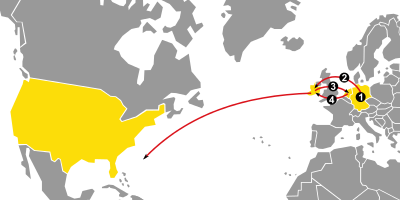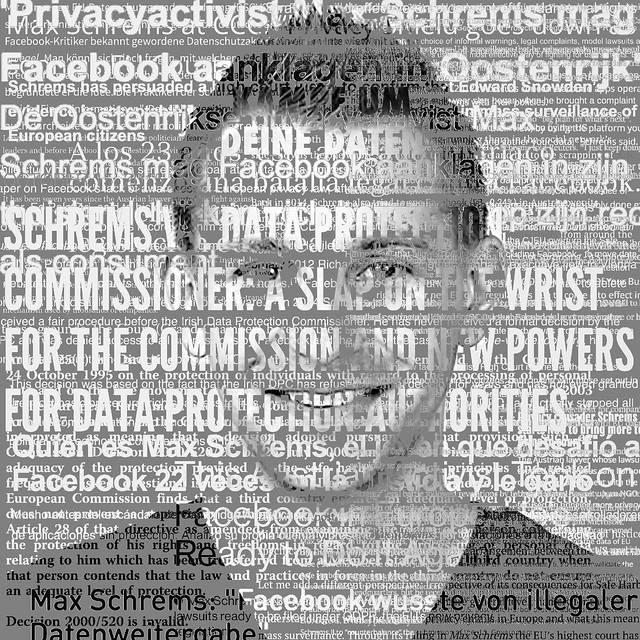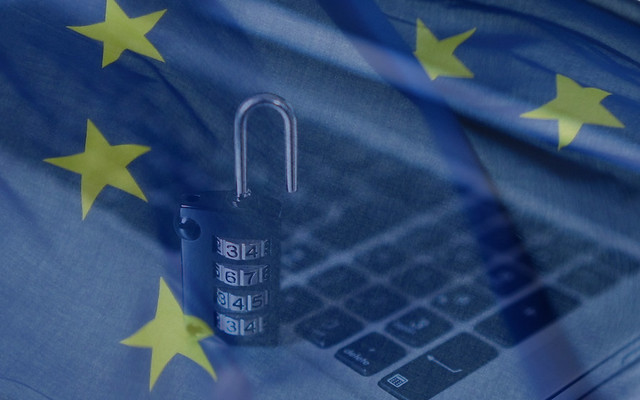Author: Alex Heshmaty
Alex Heshmaty is technology editor for the Newsletter. He runs Legal Words, a legal copywriting agency based in the Silicon Gorge. Email alex@legalwords.co.uk.

New digital services tax implemented in France
Governments around the world have grappled with the challenge of sufficiently taxing international companies – particularly peripatetic tech giants – which aggressively pursue policies of (perfectly legal) tax avoidance. One of the main reasons that so many Silicon Valley icons decide to base their European operations in Dublin (including Google and Apple) is due to […]
Read More
Max Schrems: the return
In the wake of growing data protection concerns around the turn of the century, a framework dubbed “Safe Harbor” was agreed between the EU and the US in 2000, which essentially permitted transatlantic free-flow of personal data. Towards the end of 2015, as a result of one of several legal challenges brought by prolific Austrian […]
Read More
First GDPR level fines in the UK
One of the key changes brought about by the General Data Protection Regulation (GDPR), which came into force on 25 May 2018, was a substantial increase in the maximum fines available for data protection breaches, to the higher of €20 million or 4% of global annual turnover. Any breaches which occurred prior to this date […]
Read More
Information overload: time to take a break?
Information overload is defined by Wikipedia as “the difficulty in understanding an issue and effectively making decisions when one has too much information about that issue” – although, ironically, it offers alternative definitions based on multiple sources! History The concept of excessive information is nothing new. Back in the 16th Century, renaissance scholar Erasmus blamed […]
Read More
Airbnb should be seen as a digital service provider
Airbnb has been a phenomenal success since it was launched just over a decade ago, arguably creating more choice for travellers seeking accommodation while providing a user friendly platform which allows homeowners to rent out a spare room easily. However, it has also faced mounting criticism from various quarters: city officials claim that investors snap […]
Read More
Porn age checks delayed (again)
Internet regulation has been very much in the public eye lately, particularly following the Cambridge Analytica scandal, and the government recently published its Online Harms White Paper which seeks to address some of the concerns surrounding the ‘Wild West Web’. One of the key issues regularly raised is the protection of children from exposure to […]
Read More
Privacy in the workplace … or not?
The debate around workplace monitoring of employees has rumbled on for many years now; employers argue that they are entitled to analyse how their staff spend their working day whilst employees claim it impacts upon their privacy. In 2017 the European Court of Human Rights held, in the case of Bărbulescu v Romania, that the […]
Read More
Internet regulation: do we really need more?
The Government published its Online Harms White Paper on 8 April 2019. The consultation, which is open until 1 July 2019, sets out proposals to reduce illegal and harmful online activity. The harms in scope include: harassment and cyberbullying; hate crime and incitement of violence; terrorism, extremist and violent content; revenge/extreme porn, child sexual exploitation […]
Read More
Courtroom technologies
A recent major IT failure on the Ministry of Justice network, which reportedly led to the disruption of thousands of cases, highlighted how reliant courts already are upon technology. Commenting in the wake of the fallout, Richard Atkins QC, the chair of the Bar Council, noted that “it illustrates how vulnerable the delivery of justice […]
Read More
The enigmatic Twitter
Twitter is the social media platform of choice for journalists, free speech campaigners, Russian trolls and American presidents. On the social media spectrum of formality, it sits somewhere in between professional networking colossus LinkedIn and lolcat empire Facebook. Twitter is essentially a “social” messaging service which enables you to maintain a minimalist profile, broadcast short […]
Read More
LinkedIn – the lawyer’s social media channel of choice
LinkedIn, acquired by Microsoft in 2016, has over 250 million active monthly users and, according to research from Attorney at Work, it is the most popular social media channel in the US legal sector, used by over 90 per cent of lawyers and forming part of the overall marketing strategy in around 70 per cent […]
Read More
Government surveillance
There are many different facets to an Orwellian dystopian society (in which, some may argue, we already live) where privacy no longer exists and Big Brother is watching everyone. Some of the culprits are data mining and tracking used by the tech giants for profiling internet denizens in order to realise lucrative profits from highly […]
Read More